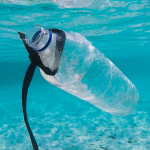
Plastic Free July
Welcome to plastic free July. What does that mean exactly? If you decide to take part you join other millions of people around the globe who are agreeing to reduce their plastic waste. The movement started was started in 2017 by Rebecca Prince-Ruiz (founder of the Plastic Free Foundation) and a small team in local government in Western Australia. It is now one of the most influential environmental campaigns in the world.
Whether you are a believer in Climate change or not, 18 billion pounds of plastic waste flowing into our oceans every year from coastal regions (published by National Geographic in May 2019) is not good in anyone’s standards. From my own personal experience, on a recent trip to Ireland I witnessed the exuberant level of pollution in their beaches and bays. Something I had never seen before. The locals told us this beautiful part of the world has become an ocean waste deposit.
Looking at our own home front, Australia (according to War on Waste statistics), Australia is one of the most wasteful countries in the developed world. We use over 10 million plastic bags a day. 85% of soft plastic from bags and packaging ends up in landfill.
It’s an interesting time for all of us. The choices we make in our lives, both personally and professionally. Recently Coles launched their latest ‘little shop’ campaign, ie, plastic toys … and have received backslash from the likes of change.org – who have started a petition which says – “Are you gobsmacked that Coles has brought out a new range of ‘little shop’ toys during Plastic-free July?”
This is something I have thought a lot about in our business. The promotional product industry produces a lot of plastic products. It is changing. Can it change faster ? Of course. I think it comes down to education, product availability and business/brand positioning. In the last 10 years, sustainable / eco-friendly products have evolved from novel / niche to being in high demand. This growing movement has been driven by:
- Changing consumers attitudes: “25% of consumers are extremely concerned about plastic packaging, 42% think manufacturers should prioritise making packaging recyclable and 21% think the industry should work toward entirely plastic-free packaging” (Kantar).
- Consumer purchase decisions are becoming more relationship / belief (2018 Edelman Earned Brand report) based than transactional.
- Educational programs and the rise of influencers: David Attenborough, “The War on Waste”, Leonardo Dicaprico Save the Whales
- Educational precincts – UTS is working on eliminating the most common single-use plastic items in their campus.
- Businesses – Unilever’s ‘Sustainable Living’ brands accounted for 60% of growth in 2016 and grew 50% faster than the rest of the business. Lego has committed to building its toys entirely from plant-based or recycled materials by 2030. They are investing over $2.18 billion in this project.
- Availability of environmentally friendly products.
Through my research over the years of environmentally friendly products, I see the trend of reverting back to ‘the way we were’. We sold ourselves the dream of fast and convenient, only to realise that it’s not good for us or the environment. So slowly, we are changing things and going back to basics. That’s why you will see promotional products that don’t feel necessarily new… but the sourcing, the materials, the logistics … has changed. Here are a few I would like to share with you:
WHEAT STRAW – Is the stalk left over of harvested wheat grains. Previously it was categorised as a waste product – where in some countries they would burn off the starch. The material is now reclaimed to make wheat products.
BAMBOO – The fastest growing plant. It can be easily substitute all known wood applications without having to cut down entire bamboo groves or plantations. It also continuously grows after harvest without having to re-plant it. Bamboo converts about 35% more CO2 into oxygen than a regular tree.
RICE HUSK – A waste product with little value, so recycling will not reduce air pollution and the amount of plastic used! Biodegradable and reusable.
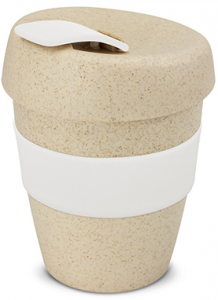
GLASS – A natural choice for a clean, pure taste and offers a safe and eco-friendly alternative.
SILICON – Made from silica found in sand, lasts longer than plastic, both in respect to the environment and product usage. It’s high durability, makes it more ‘ocean friendly’. Silicone can take extreme variations in temperature (cold to hot) without cracking, melting or falling apart.
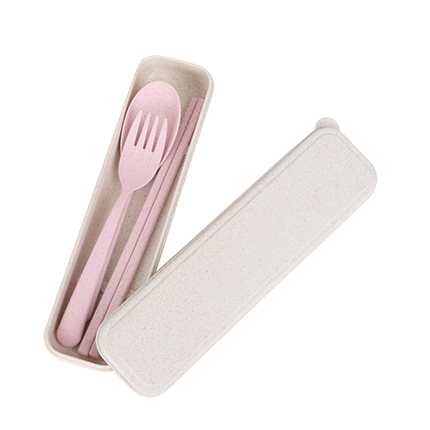
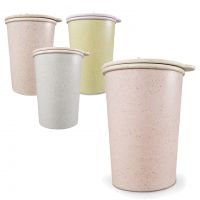
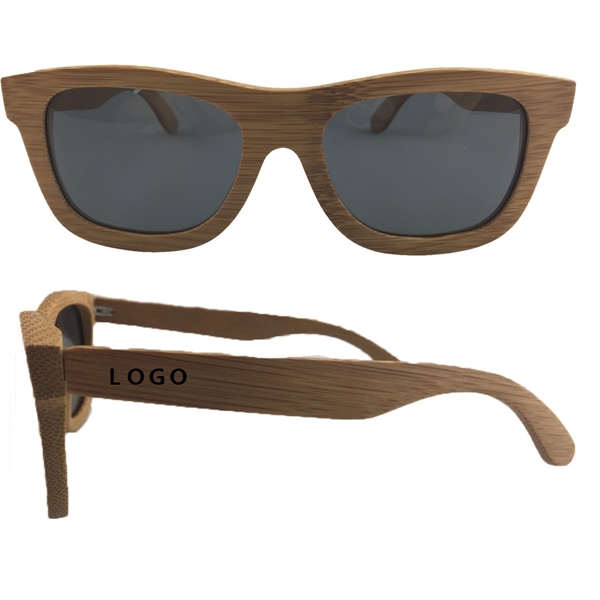
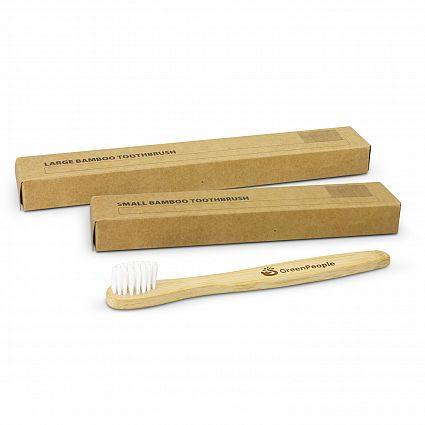
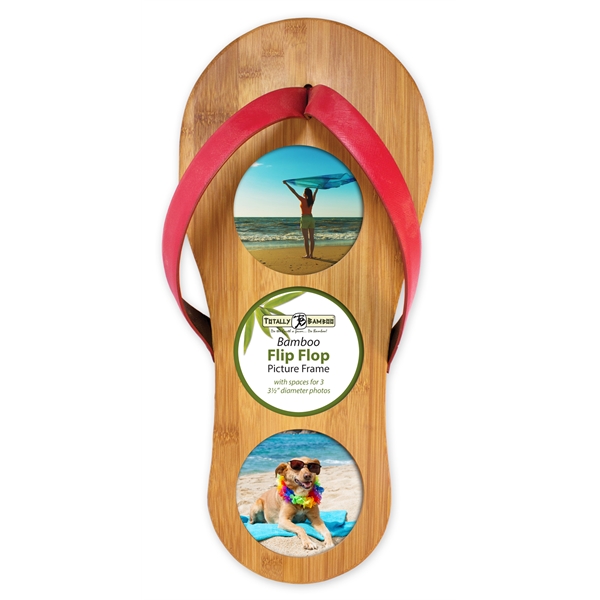
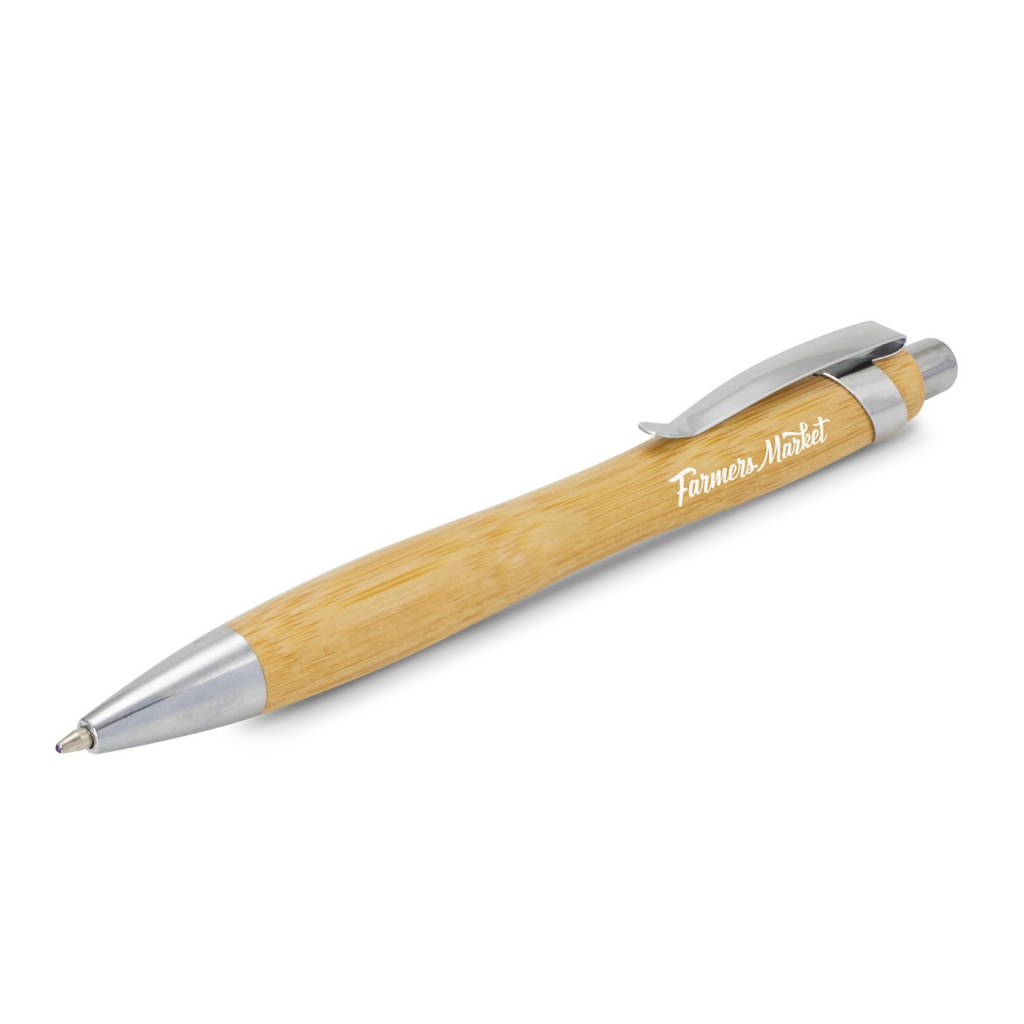
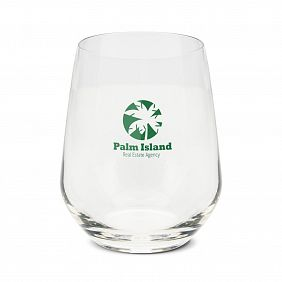

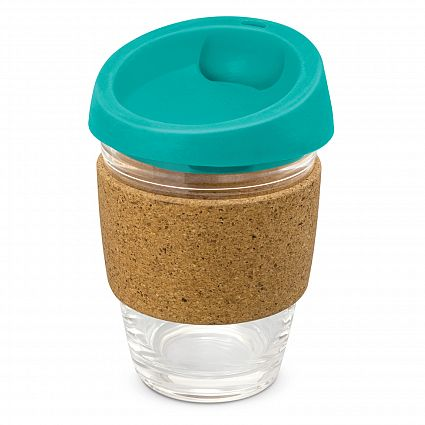

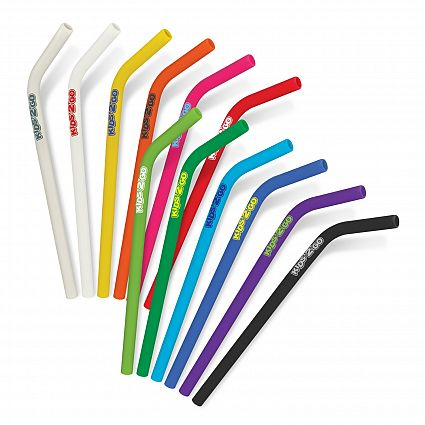
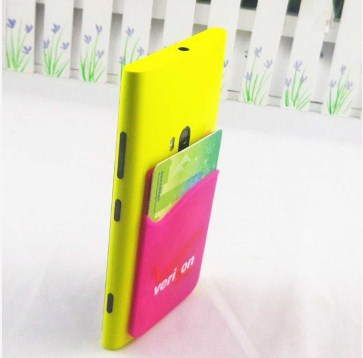


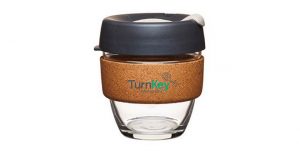 It’s so topical. Your regular take away coffee cup is not disposable, despite the fact that it is made of paper. Your clients and customers are becoming more educated about this issue, and are getting on board the movement to save nearly 1 billion coffee cups from going to waste each year in Australia. So why not consider reusable choices?
It’s so topical. Your regular take away coffee cup is not disposable, despite the fact that it is made of paper. Your clients and customers are becoming more educated about this issue, and are getting on board the movement to save nearly 1 billion coffee cups from going to waste each year in Australia. So why not consider reusable choices?